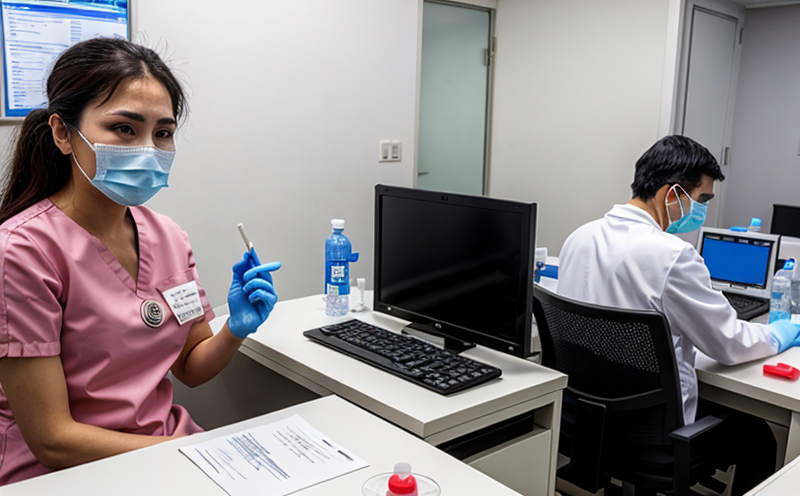Newcastle Disease Virus Serology Testing in Birds
The Newcastle Disease Virus (NDV) is a significant pathogen affecting avian species worldwide. It belongs to the family Paramyxoviridae and can cause severe respiratory, enteric, and nervous system disorders in birds. Early detection of NDV through serological testing is crucial for preventing outbreaks and controlling infectious diseases within poultry farms.
The importance of this test extends beyond just identifying infected birds; it also plays a pivotal role in monitoring the health status of bird populations and implementing effective vaccination strategies. Proper management of NDV can significantly reduce economic losses due to disease-related mortality, increased feed costs, and decreased egg production.
Serological tests are particularly useful for large-scale screening programs because they allow for rapid assessment without requiring invasive sampling methods or specialized laboratory facilities. These non-invasive techniques make the testing process more accessible to smallholder farmers as well as commercial operations.
Our laboratory uses validated ELISA (Enzyme-Linked Immunosorbent Assay) kits that comply with international standards such as ISO 15189 and IEC TR 62793. These tests measure specific antibodies against NDV, providing accurate results within a short timeframe. By conducting regular surveillance using these methods, stakeholders can make informed decisions about biosecurity measures and vaccination schedules.
The ability to detect both current infections (acute phase) and past exposures (convalescent phase) makes serology an indispensable tool in avian health management programs. Understanding the dynamics of NDV prevalence helps in tailoring preventive measures effectively across different regions and species.
Given its critical role in disease control, it is essential that laboratories performing such tests adhere to stringent quality assurance protocols. Our facility ensures compliance with all relevant guidelines by participating in proficiency testing schemes organized by organizations like the OIE (World Organization for Animal Health).
Why It Matters
Effective control of Newcastle Disease Virus through serology testing is not only beneficial at individual farm levels but also contributes significantly towards public health and food safety. Here’s why:
Risk Assessment: Regular monitoring allows for early identification of potential threats, enabling timely interventions to prevent outbreaks.
Economic Benefits: Reduced costs associated with disease management, including lower medication expenses and improved productivity.
Vaccination Optimization: Accurate data on antibody levels helps optimize vaccination programs, ensuring maximum protection without over-vaccinating.
International Trade: Compliance with international standards ensures that products meet export requirements and enhances market access.
Biosecurity Enhancement: Identifying carriers early enables better biosecurity practices, reducing the risk of introducing new pathogens into farms.
Sustainability: By minimizing the impact of diseases on bird populations, sustainable farming practices can be maintained.
Scope and Methodology
| Parameter | Description |
|---|---|
| Sensitivity | The ability to correctly identify those with the disease (e.g., ≥95%). |
| Specificity | The ability to correctly identify those without the disease (e.g., ≥98%). |
| Turnaround Time | The time taken from sample receipt to final result report availability. |
| Instrument | Purpose |
|---|---|
| ELISA Reader | Reads absorbance values which are used in calculating antibody titers. |
| Virus Antigen | Used as a positive control to ensure test specificity. |
Competitive Advantage and Market Impact
By offering accurate, reliable, and timely Newcastle Disease Virus serology testing services, our laboratory provides a competitive edge for clients in the poultry industry. Our service is particularly valuable during times of increased biosecurity risks or when there are suspected cases of NDV infection.
The demand for such tests has been driven by growing awareness about avian health issues and increasing emphasis on food safety standards globally. As part of our commitment to excellence, we continuously invest in research and development to stay ahead of emerging trends and challenges in the field of virology and serology testing.
Our expertise contributes positively to the broader market by fostering confidence among consumers regarding the safety and quality of poultry products. This reputation translates into increased trust from stakeholders across various segments including retailers, processors, and regulatory bodies.





